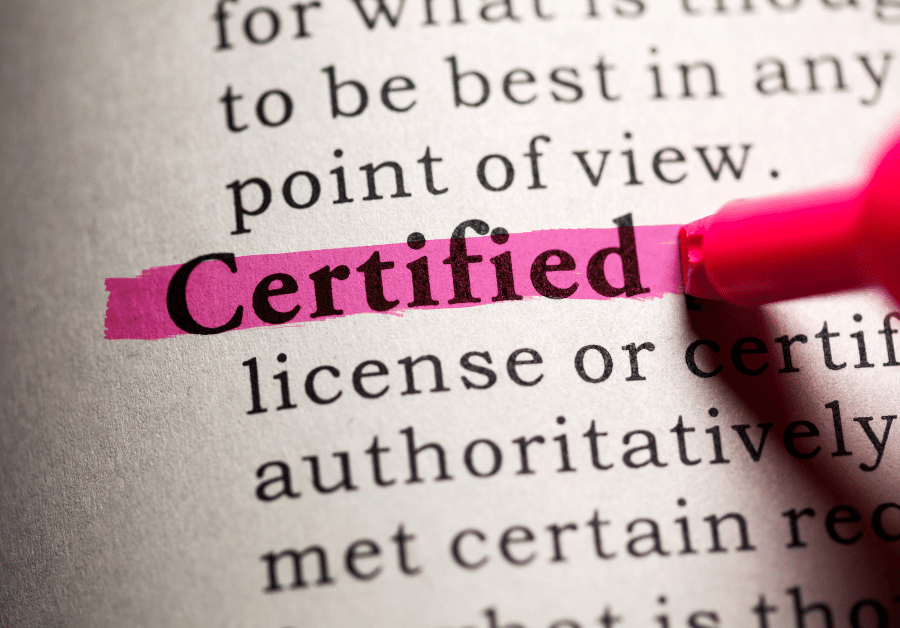Building Certifier: Your Essential Guide to Australian Approvals
Embarking on a new construction project or a significant renovation in Australia can be an exciting journey. However, it’s also a path paved with regulations, permits, and compliance requirements that can feel overwhelming. This is where a building certifier becomes your invaluable ally. Whether you’re planning to build or renovate a home in Sydney, develop a commercial property in Melbourne, or undertake a large-scale project in Perth, Brisbane, Adelaide, or Hobart, understanding the role of a building certifier is absolutely crucial.
At Get 3 Quote, we understand the complexities of the Australian building landscape. Our mission is to connect you with trusted local professionals who can guide you through every step. This comprehensive guide will demystify the role of a building certifier, explain why they are essential, and provide actionable advice for ensuring your project’s success and compliance.
What is a Building Certifier and Why Are They Crucial?

A building certifier, often referred to as a building surveyor, is a highly qualified and registered professional responsible for ensuring that building work complies with the Building Code of Australia (BCA) and relevant state and territory building legislation. Their primary function is to safeguard public safety, health, and amenity by verifying that all construction meets stringent standards.
Think of them as the independent arbiters of building compliance. They are not builders, nor are they designers; rather, they provide an impartial assessment of your project’s adherence to the law. This role is fundamental to the integrity of Australia's construction industry.
Key Responsibilities of a Building Certifier:
- Issuing Building Permits/Approvals: Before any substantial construction can begin, a building permit (also known as a building approval in some states) must be issued. The building certifier assesses your plans against the BCA and other regulations to grant this vital permit.
- Conducting Mandatory Inspections: Throughout the construction process, the certifier performs critical inspections at various stages (e.g., footings, slab, frame, waterproofing, final completion) to ensure the work is being carried out in accordance with the approved plans and the building code.
- Providing Expert Advice: They offer valuable advice on compliance matters, helping you navigate complex regulations and find solutions to potential issues before they become costly problems.
- Issuing Certificates of Occupancy/Final Certificates: Upon satisfactory completion of the project, the certifier issues a final certificate, such as an occupancy permit, confirming the building is safe and fit for use.
- Ensuring Compliance: From energy efficiency requirements to structural engineering considerations and specialist disability accommodation (SDA) standards, the building certifier ensures every aspect of the project meets legal requirements.
Private Certifier vs. Council Certifier: Making the Right Choice

In Australia, you generally have two options for engaging a building certifier: a private certifier or your local council’s building department. Both perform the same essential functions, but there are distinct differences that can influence your project’s timeline and experience.
The Rise of the Private Certifier
Since the 1990s, the introduction of private certification has revolutionised the building approvals process. A private certifier is an independent, accredited professional who can issue building permits and conduct inspections, much like a council. Many property developers and homeowners in cities like Sydney, Melbourne, Perth, Brisbane, Adelaide, and Hobart increasingly opt for private certifiers due to several advantages:
- Efficiency and Speed: Private certifiers often offer a more streamlined and responsive service, which can significantly reduce approval times. They are dedicated to your project, providing a single point of contact.
- Flexibility: They can often accommodate project schedules more flexibly than council departments, which may have higher workloads.
- Specialised Expertise: Many private certifiers specialise in certain types of projects, from residential approvals to complex commercial approvals, offering tailored advice.
Council Certifiers
Your local council also employs registered building surveyors who can act as your building certifier. While they perform the same compliance role, their processes can sometimes be slower due to broader administrative duties and internal protocols. However, some prefer councils for their perceived impartiality or for projects that require close coordination with other council departments (e.g., planning, waste management).
Table: Private vs. Council Building Certifier Comparison
| Feature | Private Certifier | Council Certifier |
|---|---|---|
| Approval Speed | Often faster, more streamlined | Can be slower due to high volume/internal processes |
| Communication | Dedicated point of contact, direct communication | May involve multiple departments, less direct |
| Cost | Fee-for-service, competitive pricing | Set fees, often part of broader council charges |
| Flexibility | More adaptable to project schedules | Less flexible, bound by council operating hours |
| Scope | Can handle residential, commercial, and specialist projects | Handles all project types within their LGA |
The choice often comes down to your project’s specific needs, budget, and desired timeline. Many find that private certifiers, like those you can find through Get 3 Quote, offer the efficiency and personalised service needed to keep complex projects on track.
When Do You Need a Building Certifier? Understanding Project Scope

It's a common misconception that only large-scale developments require a building certifier. In reality, a wide range of building and renovation projects, both residential and commercial, necessitate their involvement. If you’re planning to build or renovate in Western Australia, New South Wales, Victoria, Queensland, South Australia, or Tasmania, it’s highly likely you’ll need a certifier.
Common Projects Requiring a Building Certifier:
- New Homes: Constructing a new standalone dwelling or multi-unit development.
- Extensions and Additions: Adding new rooms, second storeys, or significant structural alterations.
- Major Renovations: Any renovation that affects the structural integrity, fire safety, or amenity of the building.
- Commercial Developments: New shops, offices, warehouses, or major fit-outs.
- Outbuildings: Large sheds, garages, carports, and pergolas over a certain size (which varies by state and council).
- Swimming Pools and Spas: Including associated fencing and safety barriers.
- Retrospective Approvals: For work that was undertaken without prior approval, a certifier can assist in obtaining retrospective approvals to ensure compliance.
- Specialist Disability Accommodation (SDA): Projects involving SDA or liveable housing designs require specific certification to meet accessibility standards.
Even for what might seem like a small builder project, such as a deck or retaining wall, it’s always best to check with a professional or your local council to confirm if a building permit is required. Engaging a certifier early, even during the architectural design phase, can save you time and money by identifying potential compliance issues before construction begins.
The Building Approval Process: A Step-by-Step Guide
Understanding the typical stages of the building approval process can help you prepare and ensure a smoother journey for your project. While specifics can vary slightly between states (e.g., NSW, VIC, QLD, WA, SA, TAS), the core involvement of the building certifier remains consistent.
Steps to Engage a Building Certifier and Secure Approvals:
- Initial Consultation & Design Review: Once you have preliminary architectural design plans (perhaps created with sketch software), contact a building certifier. They will review your plans against the Building Code of Australia (BCA), local government regulations, and other relevant standards (e.g., energy efficiency, bushfire assessment, structural engineering). This early advice is invaluable for preventing costly redesigns.
- Documentation Gathering: Your certifier will advise on all necessary documentation for your building permit application. This often includes detailed architectural plans, structural engineering reports, energy efficiency assessments, bushfire attack level (BAL) reports (if applicable), and potentially specialist disability accommodation (SDA) compliance reports.
- Building Permit Application & Assessment: The certifier will lodge and assess your application. They ensure all required elements are present and compliant before issuing the official building permit. This is where their expertise in building surveying certification shines.
- Mandatory Inspections During Construction: As construction progresses, the certifier will conduct a series of mandatory inspections at key stages. These typically include:
- Footings/Slab Inspection
- Frame Inspection
- Waterproofing Inspection
- Stormwater/Drainage Inspection
- Final Inspection
- Final Certification & Occupancy Permit: Once all building work is complete and all inspections are passed, the building certifier issues a final certificate, often an Occupancy Permit. This document legally allows you to occupy or use the building, confirming it meets all safety and compliance requirements.
These inspections are critical for ensuring compliance and quality control throughout the build.
Throughout this process, effective communication with your certifier, builder, and other consultants (like structural engineers) is key. The team at Get 3 Quote can help you find professionals who excel in project management and clear communication.
Beyond the Basics: Specialist Services and Compliance
The role of a building certifier extends beyond basic compliance. They often provide specialist services and advice on complex areas, ensuring your project is not only safe and legal but also future-proofed.
Key Areas of Specialist Compliance and Advice:
- Energy Efficiency: With growing environmental concerns, energy efficiency is a major component of the BCA. Certifiers ensure designs meet minimum energy ratings, contributing to sustainable building practices.
- Bushfire Assessment: In bushfire-prone areas across Australia, especially in regional parts of NSW, VIC, and WA, a bushfire assessment is critical. Certifiers ensure your project adheres to specific construction requirements to mitigate bushfire risk.
- Liveable Housing and Changing Places: For inclusive design, certifiers guide projects to meet Liveable Housing Design Guidelines or Changing Places standards, particularly important for specialist disability accommodation and public facilities.
- Structural Engineering and Architectural Design: While not providing these services directly, certifiers review the reports and plans from structural engineering and architectural design consultants to ensure they align with the BCA and other standards.
- Retrospective Approvals: Sometimes, work is completed without the necessary approvals. A certifier can assist in obtaining retrospective approvals, guiding you through the process of bringing non-compliant work up to standard.
- Insurance Events: In the unfortunate event of damage, a building certifier may be involved in assessing compliance post-repair for insurance events.
For property developers and those undertaking large commercial projects, a certifier's expertise in master planning and navigating complex compliance frameworks is indispensable. Companies like Elite Compliance, for instance, offer comprehensive building surveying and compliance services across metropolitan locations including Perth, Brisbane, Melbourne, and Sydney, showcasing the breadth of services available.
Choosing the Right Building Certifier for Your Project
Selecting the right building certifier is a critical decision that can significantly impact your project’s success. Here’s what to look for, especially when seeking professionals in Sydney, Melbourne, Perth, Brisbane, Adelaide, or Hobart:
Qualities of an Excellent Building Certifier:
- Registration and Accreditation: Ensure they are a registered building surveyor or private certifier with the relevant state authority. For example, in Western Australia, they must be registered with the Building Commission.
- Experience and Expertise: Look for a certifier with experience in projects similar to yours (e.g., residential approvals, commercial approvals, specialist disability accommodation). Their team should have a strong understanding of the Building Code of Australia (BCA) and local regulations.
- Communication Skills: A good certifier will communicate clearly, explain complex requirements in an understandable way, and be responsive to your queries.
- Professionalism and Reputation: Check reviews and testimonials. A reputable firm, like those often associated with names such as MetroCert or Accredit Building Surveying & Construction Services Pty Ltd, will have a track record of reliable service.
- Insurance: Verify they hold professional indemnity insurance, which is mandatory for registered certifiers.
- Local Knowledge: While the BCA is national, local council requirements can vary. A certifier with local knowledge of Perth building regulations, for instance, can be a significant advantage.
We've heard stories of projects stalled due to poor communication or a lack of understanding of specific regulations. Choosing wisely at the outset can prevent headaches down the line. That’s why platforms like Get 3 Quote are so valuable – we connect you with vetted professionals, helping you find the perfect match for your needs.
The Get 3 Quote Advantage: Connecting You to Trusted Certifiers
Navigating the complex world of building approvals and finding a reliable building certifier can be daunting. This is where Get 3 Quote steps in to simplify the process for you. We are a leading online platform dedicated to connecting homeowners and businesses across Australia with trusted local service providers.
How Get 3 Quote Makes It Easy to Find Your Building Certifier:
- Tell Us What You Need: Fill out our simple online form and describe your project. Whether it’s residential approvals in Adelaide, commercial approvals in Brisbane, or a new home build in Hobart, we capture your specific requirements.
- Get Quotes from Professionals: We connect you with up to 3 detailed quotes from verified local building certifiers or building surveyors in your area. Our network includes highly qualified professionals offering comprehensive building surveying certification services.
- Choose the Best Match: Compare quotes, review profiles, and read testimonials to find the perfect professional for your job. This empowers you to make an informed decision based on value, expertise, and fit.
Our service takes the guesswork out of finding reliable construction services and helps you make contact with experts quickly. We ensure the professionals we connect you with are experienced, understand the nuances of the Building Code of Australia, and can provide the necessary certification and advice for your project, from initial design to final certificate. We even help with those moments where you need a builder specialist for your project management needs, or perhaps advice on energy efficiency or bushfire assessment.
Conclusion: Your Partner in Building Compliance
The role of a building certifier is undeniably central to the success and legality of any construction project in Australia. From ensuring compliance with the stringent Building Code of Australia to providing crucial advice on complex issues like energy efficiency and specialist disability accommodation, their expertise is non-negotiable.
Whether you're a first-time homeowner in Perth planning to build, a property developer in Sydney or Melbourne, or a business undertaking commercial approvals in Brisbane, Adelaide, or Hobart, having the right registered building surveyor by your side is paramount. They provide the peace of mind that your investment is safe, compliant, and built to last.
Don't let the complexities of building approvals deter you. Let Get 3 Quote simplify the process of finding a trusted and experienced building certifier for your project. Our service connects you with the best local professionals, ensuring your building journey is as smooth and successful as possible.
